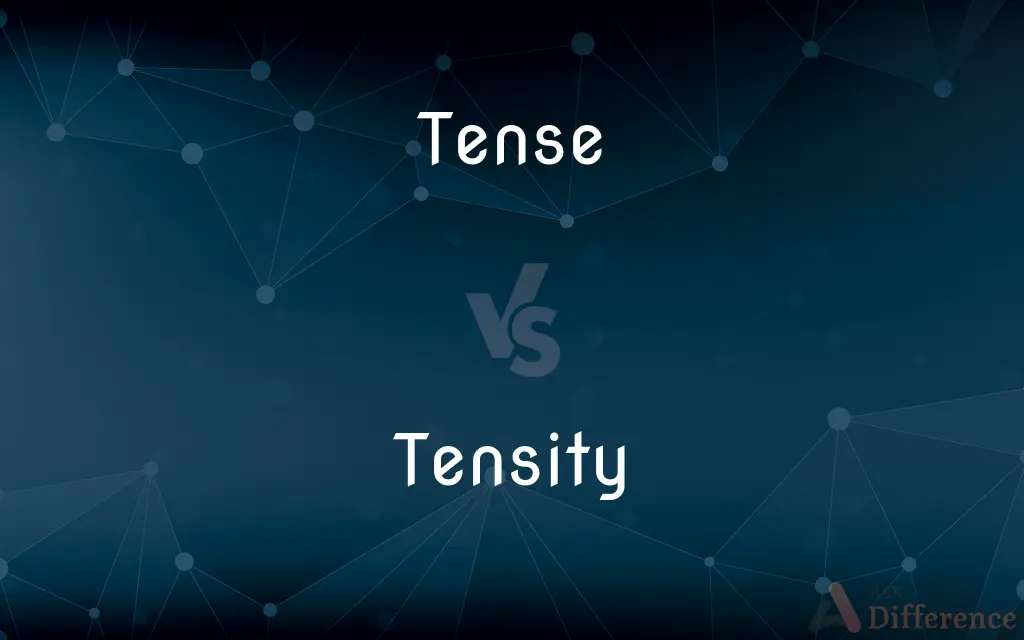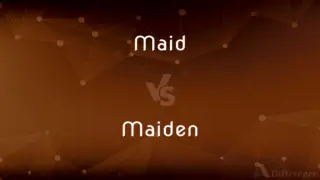Tense vs. Tensity — What's the Difference?

Difference Between Tense and Tensity
ADVERTISEMENT
Compare with Definitions
Tense
Tightly stretched; taut.
Tensity
The state of being tense; tenseness.
Tense
In a state of nervous tension or mental strain
Was very tense before the exam.
Tensity
The quality of being tense (literally or figuratively); tension.
Tense
Causing or characterized by nervous tension or mental strain
A tense standoff between border patrols.
ADVERTISEMENT
Tensity
The quality or state of being tense, or strained to stiffness; tension; tenseness.
Tense
(Linguistics) Enunciated with taut muscles, as the sound (ē) in keen.
Tensity
The physical condition of being stretched or strained;
It places great tension on the leg muscles
He could feel the tenseness of her body
Tense
To make or become tense.
Tense
A property of verbs in which the time of the action or state, as well as its continuance or completion, is indicated or expressed.
Tense
A category or set of verb forms that indicate or express the time, such as past, present, or future, of the action or state.
Tense
Any of the forms of a verb which distinguish when an action or state of being occurs or exists.
The basic tenses in English are present, past, and future.
Tense
An inflected form of a verb that indicates tense.
English only has a present tense and a past tense; it has no future tense.
Tense
The property of indicating the point in time at which an action or state of being occurs or exists.
Dyirbal verbs are not inflected for tense.
Tense
To apply a tense to.
Tensing a verb
Tense
(transitive) To make tense.
Tense
(intransitive) To become tense.
Tense
Showing signs of stress or strain; not relaxed.
You need to relax, all this overtime and stress is making you tense.
Tense
Pulled taut, without any slack.
Tense
One of the forms which a verb takes by inflection or by adding auxiliary words, so as to indicate the time of the action or event signified; the modification which verbs undergo for the indication of time.
Tense
Stretched tightly; strained to stiffness; rigid; not lax; as, a tense fiber.
The temples were sunk, her forehead was tense, and a fatal paleness was upon her.
Tense
A grammatical category of verbs used to express distinctions of time
Tense
Stretch or force to the limit;
Strain the rope
Tense
Increase the tension on;
Tense a rope
Tense
Become tense or tenser;
He tensed up when he saw his opponent enter the room
Tense
Make tense and uneasy or nervous or anxious;
Tense
In or of a state of physical or nervous tension
Tense
Pronounced with relatively tense tongue muscles (e.g., the vowel sound in `beat')
Tense
Taut or rigid; stretched tight;
Tense piano strings
Share Your Discovery

Previous Comparison
Maid vs. Maiden
Next Comparison
Coolly vs. Nonchalantly














































